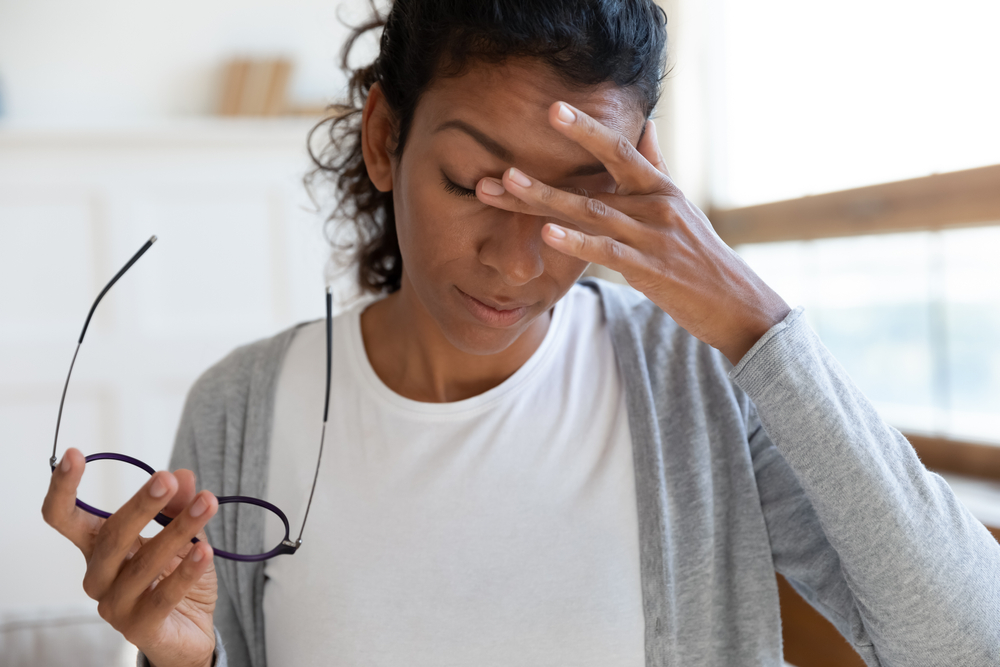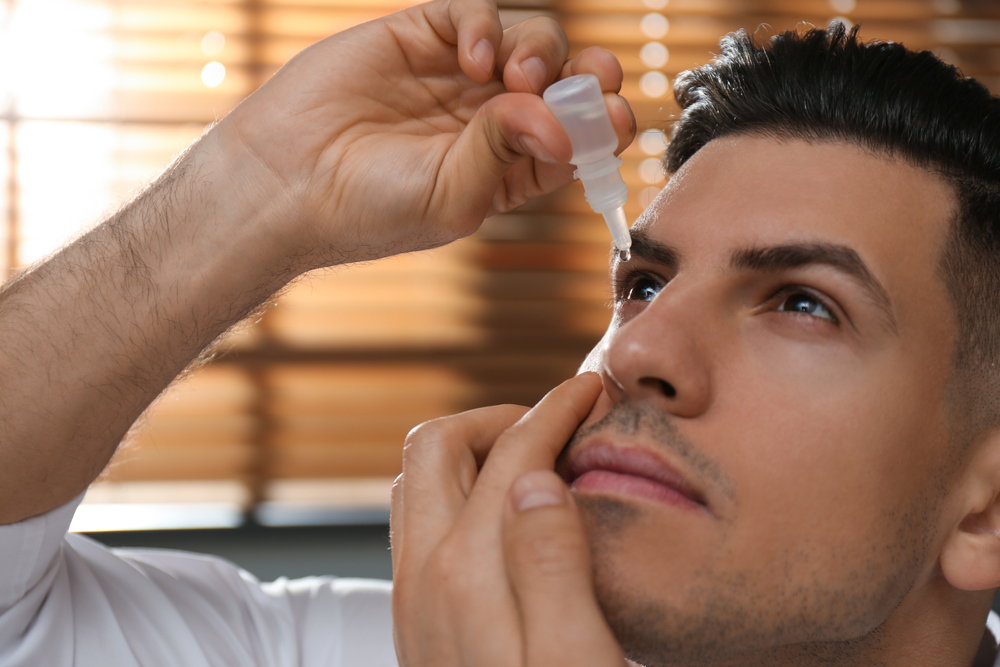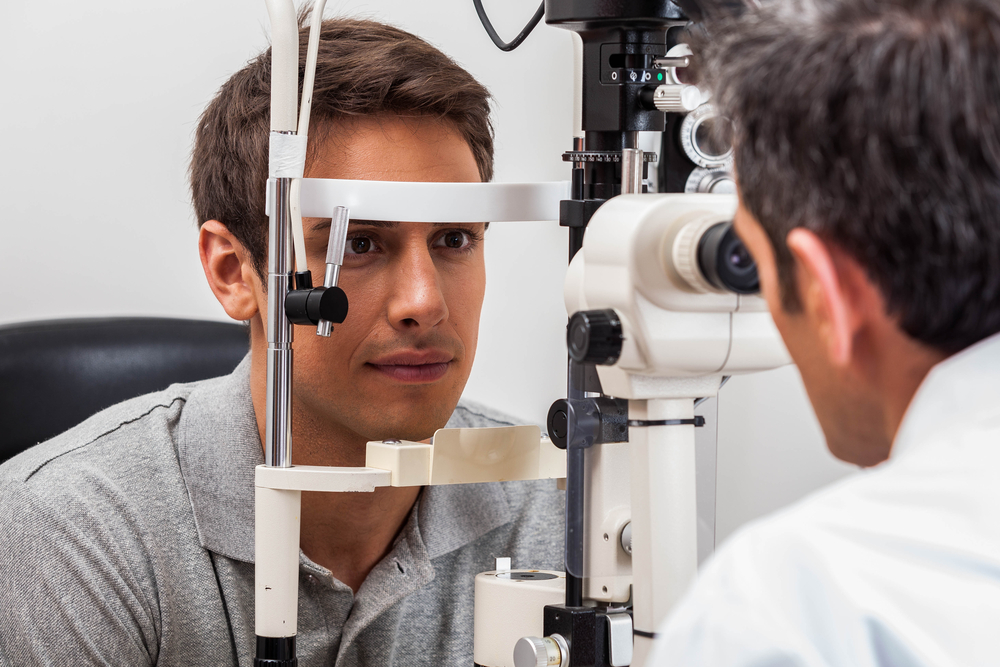Do your eyes often feel irritated? It may be because they’re dry. Dry eyes are incredibly prevalent and can occur for several reasons.
These reasons are often closely tied to your total body health. For example, if you’re not getting enough hydration, your eyes will have more trouble producing tears.
But regardless of the cause of your dry eyes, it’s essential to manage them. Treatment will not only relieve uncomfortable symptoms but also improve your health and prevent potential vision loss.
With that in mind, keep reading to learn about the connection between dry eyes and whole-body health and some tips for managing dry eyes!
Recognize the Symptoms of Dry Eyes
You need to recognize the symptoms of dry eyes to know if you have dry eyes. Dry eyes occur when your eye’s tear film, which is the layer of tears distributed over your eye when you blink, isn’t keeping your eye well-lubricated.

Your eyes need to be moist to stay healthy, flush out foreign bodies, and prevent the build-up of bacteria. When your eyes aren’t getting enough moisture from your tear film, it can cause several symptoms, including:
- Burning and stinging sensations
- Eye redness and inflammation
- Watering
- A feeling of grit in the eye
- Light sensitivity
- Blurry vision
- Eye strain
- Itching
These symptoms are uncomfortable and can also affect your whole-body health. Eye strain can lead to headaches and fatigue.
If you experience these symptoms, you should see your ophthalmologist at St. Luke’s Eye to have your dry eyes assessed and treated.
Don’t Write Off Dry Eye Symptoms as “Just Allergies”
Eye allergy symptoms can be similar to dry eye symptoms. It’s also common to have dry eyes and eye allergy symptoms.
These symptoms can feed into each other and cause a cycle of discomfort. While dry eyes can feel itchy, one of their primary symptoms is burning or feeling like there’s grit in your eyes.
However, itchiness is one of the most common symptoms of eye allergies. While you should never rub your eyes, it’s especially challenging not to if they are itchy and irritated.
Itching and rubbing your eyes will only exacerbate your allergy symptoms. If you also have dry eyes, rubbing your eyes will only make these symptoms worse as well.
If your eyes frequently feel irritated and inflamed and over-the-counter allergy medication doesn’t help, you should see your eye doctor, as you could have dry eyes.
The Serious Consequences of Chronically Dry Eyes
Dry eyes are often caused by dry eye syndrome, a common condition that’s especially common in older adults, women (especially women going through menopause), and people with inflammatory skin conditions (like eczema and rosacea).
Dry eye syndrome affects your tear film quality. This is because dry eye syndrome affects tear production.
Your tears have three separate components that your eye produces: mucus, water, and oil. Your tears require a balance of all three components.
But when your eyes struggle to produce one component, your tears are imbalanced and aren’t able to adequately hydrate your eyes. Not only does this cause uncomfortable symptoms, it can have a long-term effect on your health.
Dry eyes make eyes more prone to corneal abrasions and infections. When an abrasion becomes infected, it can become an open sore called a corneal ulcer.
Corneal ulcers can damage the eye permanently and even cause vision loss. It’s imperative to have your dry eyes examined by your ophthalmologist at St. Luke’s Eye so you can be diagnosed and treated.
Try Home Remedies As Recommended By Your Eye Doctor

When you see your eye doctor about dry eye symptoms, they can assess your tears to diagnose you and recommend treatment. Treatment often starts with simple lifestyle changes and home remedies.
These often include over-the-counter medications such as lubricating eye drops and eyelid scrubs. They may also include using a humidifier in your home or workplace. St. Luke’s can recommend eye drops for dry eyes.
Dry air often exacerbates dry eye symptoms and is bad for your health, drying out your skin and sinuses. Poor nutrition can also contribute to dry eyes, so your eye doctor may recommend a change in diet.
This usually means getting more omega-3 fatty acids from your diet, including fish and many types of seeds. You can also get omega-3 through fish oil or flaxseed oil supplements.
Don’t Rely on Home Remedies Alone
If you’re diagnosed with dry eye syndrome, home remedies and lifestyle changes will unlikely be enough on their own. They can help alleviate some symptoms, but long-term management requires professional treatment.
We offer several effective treatments for dry eye syndrome here at St. Luke’s Eye, including:

Prescription Medication
These are usually eye drops that treat inflammation, like Xiidra and Restasis.
Immunotherapy
These can help with allergy symptoms that may worsen your dry eye symptoms. Immunotherapy for eye allergy symptoms involves sublingual eye drops that slowly acclimate your eyes to allergens over time.
BlepheEx
BlephEx is a medical-grade sponge that your eye doctor can use in-office to clean your eyelids thoroughly. This helps reduce inflammation and promote better tear production.
Amniotic Membrane Treatment
Amniotic membrane treatment is performed in-office and involves placing a biological membrane made from amniotic material on the eye’s surface. This naturally moisturizes the eyes and lowers inflammation.
LipiFlow
LipiFlow is an in-office treatment that uses gentle light and heat to soften blocked oil glands. Unblocking these glands helps balance tear composition if your eyes struggle to produce oil, which makes up the outer, protective layer of your tears and prevents them from evaporating too quickly.
Punctal Plugs
Punctal plugs are an in-office treatment that uses tiny plugs inserted into your tear ducts. By blocking off your tear ducts, your tears don’t drain from your eyes as quickly, making up for poor quality by staying on the surface of your eye longer.
After diagnosing you with dry eyes, we will devise a custom treatment plan that may include one or several of these treatments. Are you tired of having dry eyes?
Get the relief you need by scheduling your appointment today at St. Luke’s Eye in Clearwater, FL! Say goodbye to dry eyes and hello to beautiful vision!








